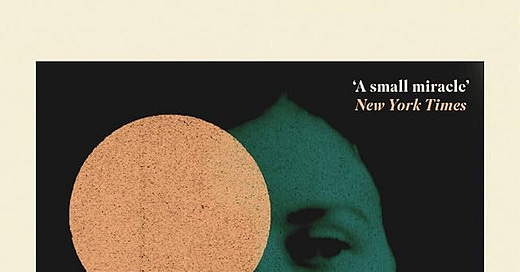CW: The novel features suicide, assisted suicide, suicidal ideation, and human captivity.
For the first official Wild Women Network book club pick, I thought we’d start strong and spooky with I Who Have Never Known Men by Jacqueline Harpman. I didn’t know what to expect when I picked this book up in Heathrow Airport. Safe to say, I fell down a philosophical rabbit hole about what it means to be human.
The plot of the novel itself is quite interesting. There are thirty eight women and one girl caged in an underground bunker. They are watched every day and night by three guards, although time is measured differently in the bunker. The first part of the book explores the women’s experiences in the cage from the child’s perspective, she is the narrator. Isolated from the other women, “the child” begins to question the reason for them being in the cage and a quiet defiance spreads amongst the women.
One day a siren goes off and by a stroke of luck, they’re able to escape the cage. They find the rest of the bunker deserted and escape into the outside. What they discover outside is a barren land and the women aren’t even sure that they’re on Earth. The rest of the book is about their survival outside of the bunker.
Over time, as they go from bunker to bunker, the women realise that they’re the only ones who were able to escape. They also find no answers to their questions, just a deserted land that doesn’t change climate, hundreds of bunkers filled with supplies, and forty men or women dead inside each one. They never come across any guards.
There are several questions I had while reading this book, questions which were never answered. The narrator’s perspective made it feel like we’re observing the result of an experiment, without knowing the research question. Baptised “the child” by the other women, she doesn’t have any of the social conditioning of the world from which they were taken from. This is because she was an infant when they were locked in the cage. Through the child, Harpman is able to dissect and question what rules supposedly define our humanity.
Her name being “the child”, reflects the curiosity and hope that characterise her nature. She is the child of this new world, of their existence in the cage. The other women who have a memory of their lives before captivity can’t conceptualise the absurdity of their new lives. However, it’s all the child has ever known, so she has no concept of “humanity” by their definition or society’s definitions.
“Perhaps that’s why I’m so different from the others, I must be lacking in certain experiences that make a person fully human.”
The child’s perspective is also a reflection of our own as the reader. We don’t get any answers to the questions of why they’re in the bunker, who put them there, where all the guards went, or whether they’re even on Earth. We’re just as clueless as she is and hopeful that the author will answer our questions, but she never does.
From the child’s perspective it seems that there are certain rules or experiences that characterise our humanity. One that I found interesting was the toilet situation. In the cage, the women had to go to the bathroom in front of each other and this really bothered them, but it didn’t bother the child.
“If the only thing that differentiates us from animals is the fact that we hide to defecate, then being human rests on very little, I thought.”
Do the rules that differentiate us from animals make us human? Is shame what makes us human if it’s a symptom of social conditioning? Or is it dignity?
The other women pity the child because she’s never known love from how they define it, but they’re referring to a romantic love. Love isn’t just romantic, you can love platonically and it is just as powerful.
The child realises that her affection for Anthea, one of the women, is love and that she actually was capable of loving. But because of the way the other women described love she didn’t realise that you could also love platonically. I find this interesting because then it seems that love, grief, curiosity, and hope are inherently human, as the child experiences all of these without having been conditioned by the world they knew before.
“And now, racked with sobs, I was forced to acknowledge too late, much too late, that I too had loved, that I was capable of suffering and that I was human after all?”
In the end, she becomes the last surviving person and wanders the land in search of answers. The child never finds any and dies alone from a diseased womb.
Even though the book was a bit bleak, okay very bleak, I really enjoyed it. I know a lot of people aren’t pleased with having so many unanswered questions in the plot, but I think that’s what keeps you thinking about the themes that were brought up in the book.




